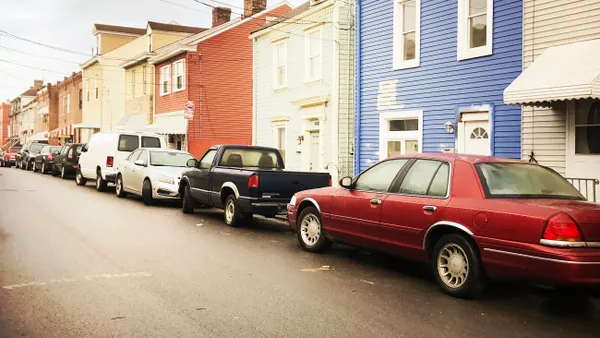Dive Brief:
- Google announced in a blog post on Monday it will invest over $1 billion in capital improvements to build a new campus in New York City, dubbed Google Hudson Square.
- The 1.7 million-square-foot campus will take over two buildings (315 and 345 Hudson Street) by 2020, to be followed by a third building takeover in 2022 (550 Washington Street). The company says Google Hudson Square will be "the primary location for our New York-based Global Business Organization."
- Google notes this expansion will allow the company to more than double its employees in New York over the next 10 years. The company currently employees 7,000 people in the city across its various departments.
Dive Insight:
While Google is no stranger to New York City — the company entered the New York market in 2000 in its first move outside of California — this expansion has been hyped since early November as a significant boon to the city's tech presence. It adds to Google's prior expansion along the Hudson River earlier this year when it purchased Chelsea Market for $2.4 billion, with intentions to lease additional space at Pier 57.
New York has long competed with Silicon Valley as an epicenter of technological advancements, with Cushman & Wakefield principal economist Ken McCarthy recently noting, "If Silicon Valley is the brains of the tech sector, then New York City is the creative center." New York recently won the coveted Amazon HQ2 bid, while Google's existing presence in New York has helped to support community engagement in the tech ecosystem. Most notably, the company has funded programs like MotherCoders to bring free tech training to moms, and has partnered with the NYC Public Library System to provide school students with free Wi-Fi.
The announcement of Google's NYC expansion follows on the heels of Apple's announcement that it will open a $1 billion campus in Austin, TX, and will expand into new sites in Seattle, San Diego and Culver City, CA. Google will continue into new markets as well, and has touted that it is "growing faster outside the Bay Area than within it," opening new offices and data centers in cities like Detroit, Los Angeles and Boulder, CO.
However, some municipal leaders have warned cities that actively pursuing these large tech campuses can carry great consequence to current residents' quality of life, particularly when it comes to transit and housing needs. Cities should instead "create a community where talent wants to live," said Charlotte Area Transit System CEO John Lewis during a recent panel discussion.











